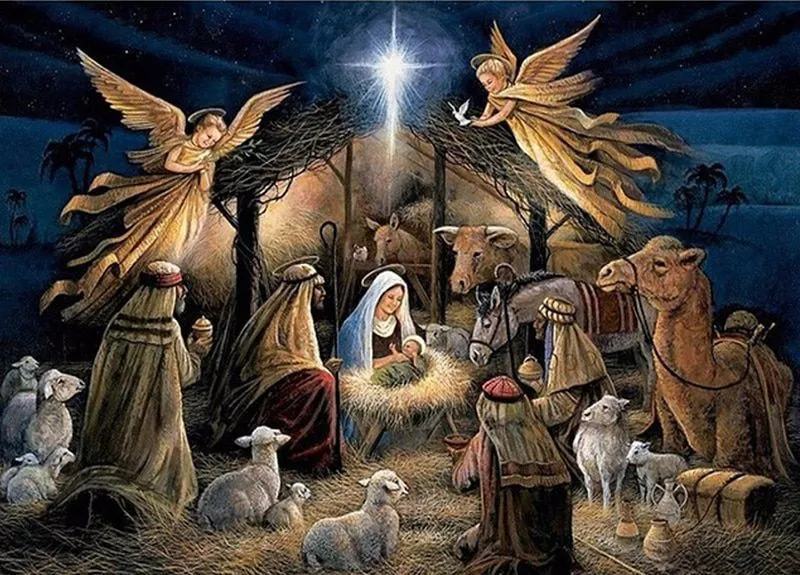The birth of Jesus Christ stands as a pivotal moment in human history, revered by millions around the world. However, determining the precise day of the month on which Jesus was born remains a subject of historical inquiry and theological debate. This article endeavors to unravel this historical puzzle by examining the evidence, exploring scholarly perspectives, and delving into the cultural and religious contexts surrounding Jesus’ nativity.
Introduction
The birth of Jesus, as narrated in the New Testament Gospels of Matthew and Luke, marks the incarnation of God in Christian belief. While the theological significance of Jesus’ birth is clear, establishing the exact day of the month poses challenges due to the limitations of historical records and the complexities of ancient chronology.
Biblical Accounts and Their Implications
Matthew and Luke offer complementary narratives of Jesus’ birth, each providing unique details that contribute to our understanding of the circumstances surrounding the nativity. These accounts include references to key figures such as Mary, Joseph, the shepherds, and the magi, as well as the geopolitical context of Roman-occupied Judea.
Early Christian Perspectives and Traditions
Early Christian communities celebrated Jesus’ birth, yet historical evidence suggests that the date of Christmas was not uniformly fixed until later centuries. The development of liturgical calendars and the incorporation of pagan festivals influenced the establishment of December 25th as the Western Christian date for Christmas, while Eastern Orthodox traditions differ in their observance.
See also: What Day Of The Month Was The Lord’s Passover Celebrated On?
Historical Context and Cultural Influences
The Roman Empire’s census practices, the Jewish calendar, and astronomical events like the Star of Bethlehem have all been examined for clues to Jesus’ birth date. These factors, alongside theological considerations and the adaptation of existing traditions, shape the diverse theories proposed by scholars seeking to pinpoint the historical moment of Jesus’ nativity.
Scholarly Debates and Modern Interpretations
Scholars approach the question of Jesus’ birth date through various lenses, including historical research, textual analysis, and archaeological findings. Debates center on reconciling biblical accounts with external historical sources and reconciling differences in chronology between Matthew and Luke.
Theological Significance and Contemporary Reflection
The theological implications of Jesus’ birth extend beyond historical inquiry, influencing Christian doctrine and shaping religious practices worldwide. Reflecting on the incarnation of Christ invites believers to contemplate themes of divine intervention, human salvation, and the continuity of God’s plan throughout history.
Conclusion
In conclusion, the quest to determine what day of the month Jesus was born reveals the intersection of faith, history, and scholarly inquiry. By examining biblical narratives, considering cultural contexts, and evaluating scholarly theories, this article aims to provide a comprehensive exploration of the complexities surrounding Jesus’ birth date and its enduring significance for Christianity.
FAQs about Jesus’ Birth Date
1. When was Jesus’s real birthday?
The exact day of Jesus’s birth remains uncertain due to the lack of specific historical records. However, December 25th is traditionally celebrated as Christmas Day in many Christian traditions, marking the birth of Jesus Christ.
2. Was Jesus born on the 25th or 7th?
There is historical debate regarding the date of Jesus’s birth. December 25th is the date traditionally observed as Christmas Day in Western Christianity. Some historical theories suggest alternative dates, but December 25th has been widely adopted as the commemoration of Jesus’s birth.
3. What month was Jesus born according to the Hebrew calendar?
According to some scholarly interpretations, Jesus may have been born around the time of the Jewish festival of Sukkot (Tabernacles), which typically falls in September or October in the Gregorian calendar. This aligns with theories linking Jesus’s birth to cultural and agricultural contexts in ancient Judea.
4. In which month do we celebrate the birth of Jesus?
The birth of Jesus is celebrated globally on December 25th in Western Christianity, marking Christmas Day. In Eastern Orthodox traditions, Christmas is celebrated on January 7th, reflecting differences in calendar systems and historical traditions.

